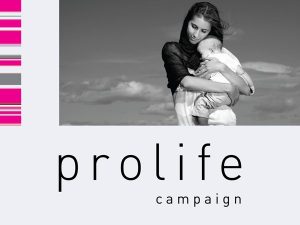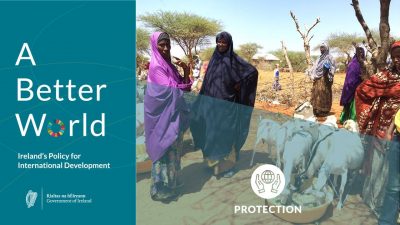
By Ann Marie Foley - 13 March, 2019

The Pro Life Campaign (PLC) has condemned a government decision to consider how to implement a policy on funding abortions in developing countries.
It is both “paternalistic and imperialistic for our government to adopt an attitude that Western countries know what’s best for developing countries and how they should regulate the size of their populations,” said Eilís Mulroy of the Pro Life Campaign. She added that Ireland should work towards improving maternal healthcare at home and abroad so that both women and their unborn babies can thrive.
PLC stated that sexual and reproductive health and rights (SRHR) are included in planned new Irish State aid initiatives. The Department of Foreign Affairs is “researching and scoping” the SRHR partners and interventions it might get involved in.
Matt Moran, author of book The Legacy of Irish Missionaries Lives On, stated that the term “sexual and reproductive health” has become a ubiquitous term used by the international abortion lobby and by some within the UN “to legitimise and normalise abortion as a staple of international health policy”.
He referred to the Irish government’s newly launched overseas aid policy (to be administered by Irish Aid), titled A Better World, as the source of the policy change. He posed the question as to whether it will allow for the beliefs of Irish missionaries, many of whom established hospitals, health clinics and care facilities in the 1950s.
“The government has always claimed that Ireland’s overseas aid programme was modeled on the pioneering work of our missionaries over many decades,” he said.

He said that African countries are not calling out for abortion but rather it goes against their culture and family values. He pointed to Uju Ekeocha, a Nigerian pro life campaigner and the founder of Culture of Life Africa, who has stated: “Wealthy nations pumping money into the promotion and funding of abortions in Africa are behaving like ‘old colonial masters’. In all my work with African countries, I don’t know of any which is screaming, ‘come and help us, we have this abortion crisis’”.
She said that donor nations need to go back to a focus on the “integral care of the person”. What Africans want most of all is basic healthcare for all and that women give birth safely.
She said that in recent years African countries have, with encouragement and support from the US administration, been finding their voice at the UN to push back against governments in Europe and Canada who want to impose abortion globally. Now Ireland will join these European governments in this ideological colonisation, using taxpayers’ money.
Matt Moran states that it is still unclear if Irish Aid will make it a condition of its funding to faith-based NGOs and missionary groups that they must provide abortion in funded development projects and programmes such as hospitals and health clinics throughout Africa. Two Irish religious congregations have told him that if providing abortion becomes a condition of funding, they will no longer accept such public funding.
The WHO estimates that 30 to 70 per cent of all healthcare in Africa is provided by faith-based organisations (FBO). Many their hospitals and clinics are the only ones in an area and they are encouraged and supported by government agencies and state-paid employees and called “mission hospitals”.
Mart Moran suggests that if Irish Aid does not fund FBOs who do not provide abortion this would cause “serious damage to the reputation of Ireland’s overseas aid programme nationally and internationally. There are precedents for UN organisations to recognise and respect the faith values of partners delivering essential services such as health and education.
The UNHCR has a partnership agreement with FBOs that does not impose conditions that would conflict with the faith values and ethos of those FBOs in the provision of services for refugees. UNICEF acknowledges the benefits of religion and spirituality as a “profound influence on children’s development”. Its approach is to focus on the shared values of each partner and not to undermine faith values.
After many years at the UN in New York, a Mercy nun from Derry, Sr Deirdre Mullan, now works with UNICEF, forging and strengthening relationships with FBOs.